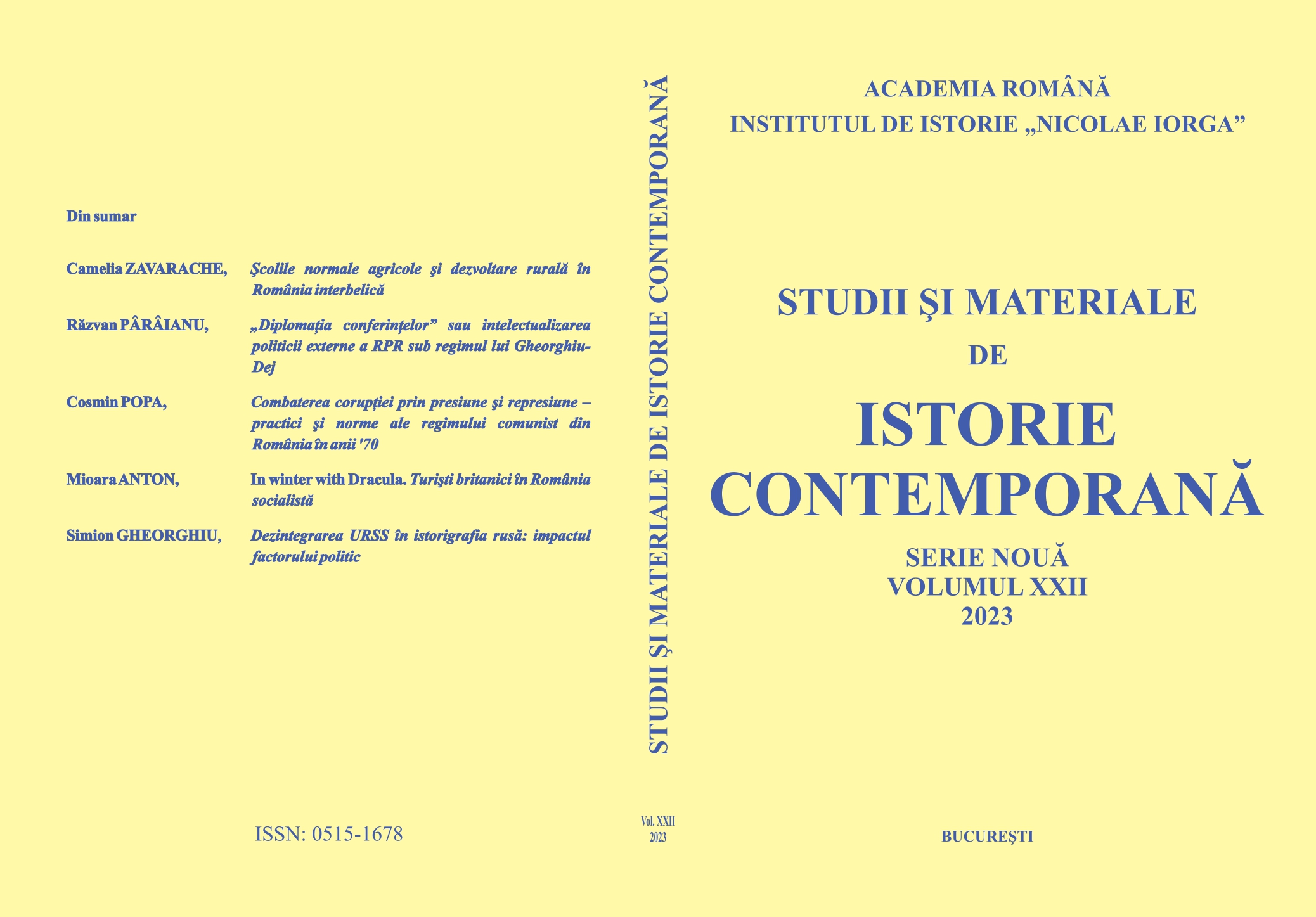Dezintegrarea URSS în istorigrafia rusă: impactul factorului politic
The Disintegration of the USSR in Russian Historiography: The Impact of Politics
Author(s): Simion GheorghiuSubject(s): History, History of ideas, Political history, Recent History (1900 till today), Special Historiographies:, Transformation Period (1990 - 2010), Present Times (2010 - today), History of Communism, Cold-War History, Post-Communist Transformation
Published by: Institutul de Istorie Nicolae Iorga
Keywords: End of the Soviet Union; historiography; Mikhail Gorbachev; Vladimir Putin; Boris Yeltsin;
Summary/Abstract: More than 30 years after the disintegration of the Soviet Union, there are still debates in the Russian Federation about whether the USSR collapsed (in Russian, raspalsea) or whether it was destroyed (in Russian, razvalili). Accepting one version or the other is trivially simple. So is rejecting them. To admit the destruction thesis is to fall for conspiracy theories, quite widespread in Russia: allegedly, organizations, such as the CIA, or individuals, such as M.S. Gorbachev or B.N. Yeltsin, deliberately imploded the Union. Relatedly, acknowledging that the USSR collapsed all by itself, for objective historical reasons, is seen as neglecting the role of personalities and their ability to react to the challenges of the times in which they lived. The article highlights the most widespread views in Russian historiography about on this debate. It also explores how political dynamics affected such historiographical discussions.
Journal: Studii şi materiale de istorie contemporană (SMIC)
- Issue Year: 22/2023
- Issue No: 22
- Page Range: 201-211
- Page Count: 11
- Language: Romanian
- Content File-PDF

